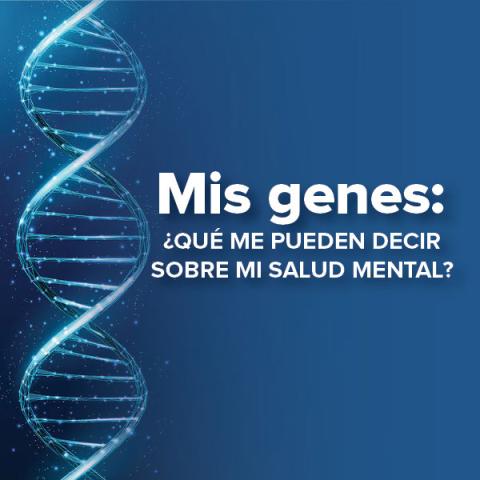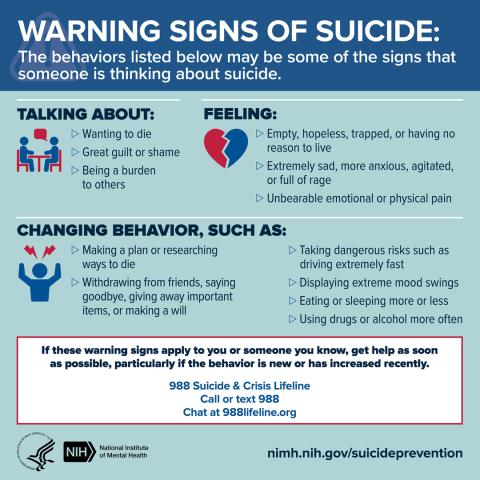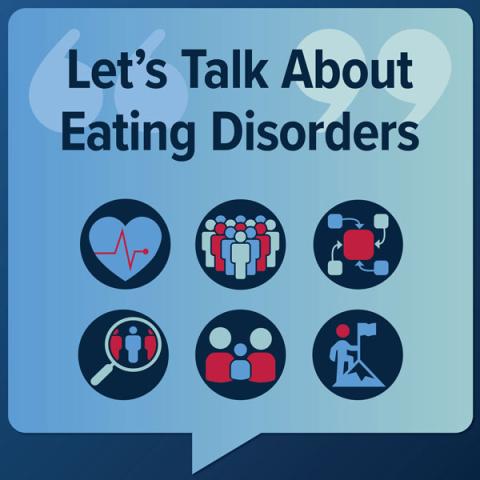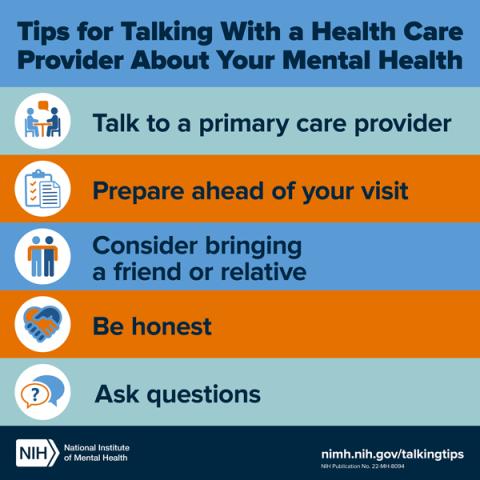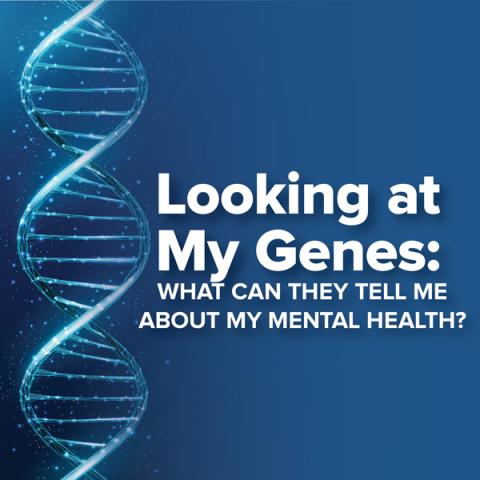
This fact sheet provides information on how you can look at your family health history and your genes to determine your risk of developing a mental disorder. It describes the difference between clinical genetic testing and direct-to-consumer genetic reports and how research on genetics is contributing to the diagnosis and treatment of mental disorders.
NIMH publication orders are temporarily suspended. Please check back for updates.
Related Publications
-
Esta hoja informativa ofrece información sobre cómo puede analizar su historial de salud familiar y sus genes, a fin de ayudar a determinar su riesgo personal de llegar a tener un trastorno mental. Describe las pruebas genéticas y la diferencia entre las pruebas genéticas clínicas y los informes genéticos de venta directa al consumidor, al igual que la forma en que las investigaciones sobre la genética contribuyen al diagnóstico y al tratamiento de los trastornos mentales.
-
This fact sheet presents five steps for helping someone who is having thoughts of suicide. The steps include: Ask, Be There, Help Keep Them Safe, Help Them Connect, and Follow Up.
-
This infographic presents behaviors and feelings that may be warnings signs that someone is thinking about suicide.
-
This infographic presents facts that can help shape conversations around eating disorders.
-
This fact sheet provides five tips to help prepare and guide you on how to talk to a health care provider about your mental health and get the most out of your visit.
Order publications by phone
Solicitar publicaciones por teléfono

